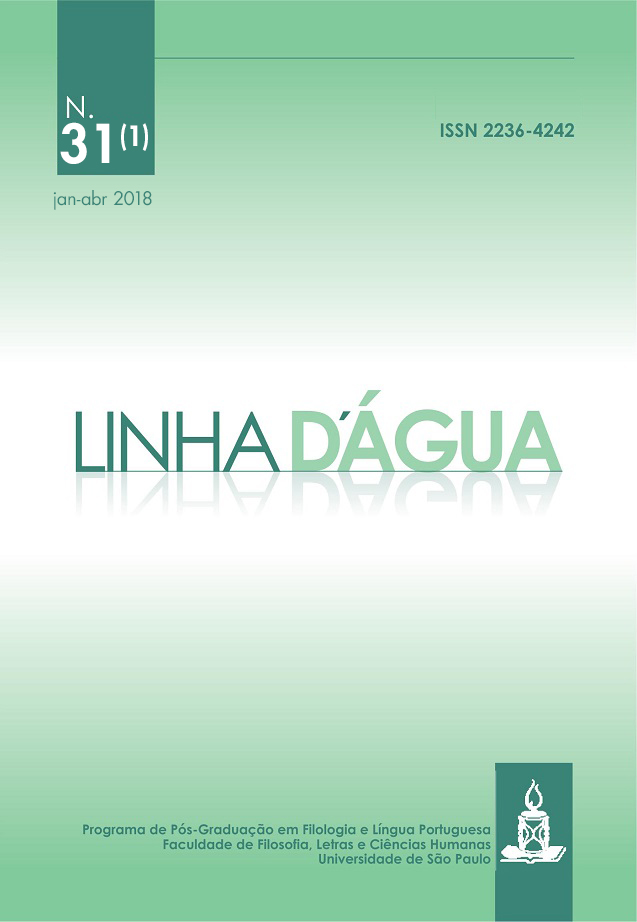Writing as a Revelation of the ‘Self’
DOI:
https://doi.org/10.11606/issn.2236-4242.v31i1p73-89Keywords:
Writing, Autobiography, Pragmatic Analysis, Confidence, Dialogism.Abstract
To begin with, we are going to focus on some characteristic traits of intimate writing, on the temporal demands of retrospective narration, from the fragmentary to the discontinuous, from the ambition of revisiting the past, to the risk of forgetting. We will then, according to a pragmatic perspective, focus our attention on the act of confiding, specifically enclosed within the space of autobiographical writing. This act, which provides a revelation of the self, both seeks and sustains a communicative sharing. By analyzing different texts, which represent the different textual genres, we intend to show the discursive signs which are characteristic of this form of expression, which is on the one hand, intimate and fragmented on the one hand, while dialogic on the other hand; resulting from the permeability, the porosity of these processes and revealing the composite dimension of this writing practice.Downloads
Downloads
Published
Issue
Section
License
The Editorial Board authorizes free access to and distribution of published contentes, provided that the source is cited, that is, granding credit to the authors and Linha D'Água and preserving the full text. The author is allowed to place the final version (postprint / editor’s PDF) in an institutional/thematic repositor or personal page (site, blog), immediately after publication, provided that it is available for open access and comes without any embargo period. Full reference should be made to the first publication in Linha D'Água. Access to the paper should at least be aligned with the access the journal offers.
As a legal entity, the University of São Paulo at Ribeirão Preto School of Philosophy, Sciences and Languages owns and holds the copyright deriving from the publication. To use the papers, Paidéia adopts the Creative Commons Licence, CC BY-NC non-commercial attribution. This licence permits access, download, print, share, reuse and distribution of papers, provided that this is for non-commercial use and that the source is cited, giving due authorship credit to Linha D'Água. In these cases, neither authors nor editors need any permission.
Partial reproduction of other publications
Citations of more than 500 words, reproductions of one or more figures, tables or other illustrions should be accompanied by written permission from the copyright owner of the original work with a view to reproduction in Linha D'Água. This permission has to be addressed to the author of the submitted manuscript. Secondarily obtained rights will not be transferred under any circumstance.










